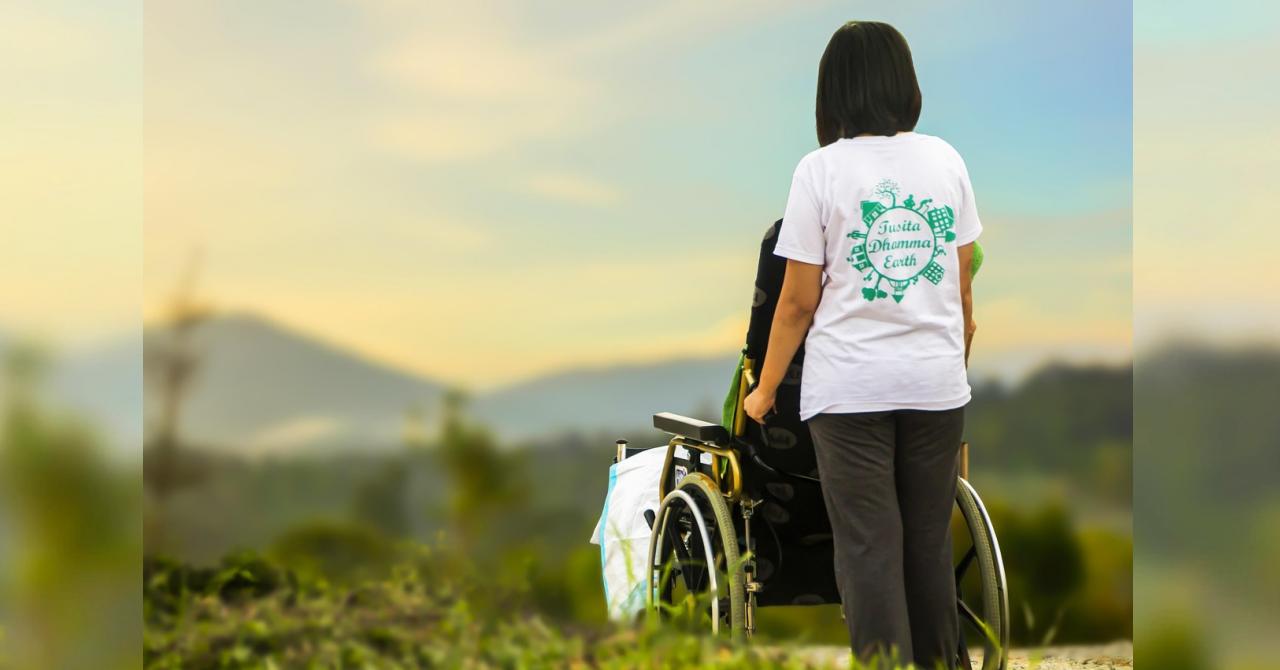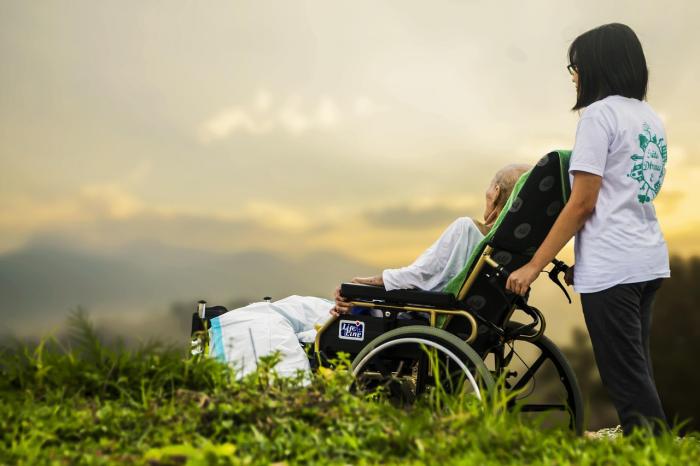A few months back, Taiwan announced that it was offering 180,000 caregiver jobs for overseas Filipino workers (OFWs) by the year 2030! This is an incredible opportunity for those who want to apply as caregivers abroad!
Caregivers usually work for the elderly and for persons with disabilities, providing them with essential care such as feeding, bathing, and other daily activities. It’s a demanding job, both physically and mentally… but very rewarding, not just financially but also because caregiving is a truly noble and fulfilling role!

Guide to Applying for Work as a Caregiver in Taiwan
If you’re interested in applying for a caregiver job in Taiwan, read on for some tips and reminders! We’ll also be presenting the typical job description, salary, qualifications, and requirements involved.
Job Description
The day-to-day responsibilities of a caregiver include the following:
- Providing the elderly or persons with disabilities with daily assistance; i.e. feeding, bathing, dressing, and grooming;
- Preparing patients’ meals based on their dietary requirements;
- Administering prescribed medications and monitoring patients’ blood pressure, temperature, pulse rate, and other vital signs;
- Assisting the patient with mobility and physical therapy exercises;
- Accompanying the patient to medical appointments and coordinating with doctors regarding their treatment; and
- Providing emotional support and companionship to the patient; and
- Coordinating with the patient’s family members, with regard to providing the best possible care for the patient.
Salary and Benefits
The monthly salary of caregivers in Taiwan range from PHP 35,000 to PHP 75,000 — depending on qualifications, experience, skills, and also based on the job requirements. Caregivers are also entitled to benefits like health insurance, overtime pay, and paid leave, along with allowances for accommodation, food, and transportation.
Qualifications
Generally speaking, to qualify for a caregiver job, an applicant must:
- Be at least 23 years old;
- Be a High School graduate or higher, with caregiving certification;
- Have at least two years of experience in the field;
- Be able to communicate in English and have good interpersonal skills;
- Be physically and mentally fit for the job; and
- Be patient and hardworking, with a genuine desire to care for others.
Of course, the criteria may vary among employers. For instance, some may prefer applicants with college degrees, particularly in nursing or other health-related fields. Meanwhile, others have height requirements (e.g. 155 cm above), weight requirements (e.g. 55 kg – 70 kg), and other qualifications.
Requirements
As for the documentary requirements, these usually include:
- Passport (valid for at least 6 months from the date of departure);
- Job Contract signed by the employer and employee;
- Work Visa issued by the Taiwan Economic and Cultural Office (TECO);
- Medical Certificate (after health exam in an accredited clinic);
- Clearance from National Bureau of Investigation (NBI);
- Overseas Employment Certificate (OEC);
- Certificate from Pre-Departure Orientation Seminar (PDOS);
- Certificate from Technical Education and Skills Development Authority (TESDA); and
- Proof of active memberships with Pag-IBIG, PhilHealth, Social Security System (SSS), and the Overseas Workers Welfare Administration (OWWA).
In addition, recruitment agencies and employers may also require these documents:
- Valid ID issued by Philippine Government (e.g. UMID, Voter’s ID, National ID, etc.);
- Educational Records (e.g. High School Diploma, College Transcript of Records, etc.);
- Birth Certificate issued by the Philippine Statistics Authority (PSA); and
- PSA-issued Marriage Certificate (if married).
Procedure
Similar to other overseas jobs, the process for applying as a caregiver in Taiwan includes finding a recruitment agency, preparing essential documents, attending interviews, and obtaining a work permit/work visa.
Finding a Recruitment Agency
With so many recruitment scams going on these days, it’s important for job seekers to find a legitimate and credible hiring agency. When you encounter a job advertisement, be sure to check the validity of the agency before submitting any papers!
Preparing Essential Documents
Aside from finding a recruitment agency, you should also begin preparing the necessary documents (e.g. passport, training certificates, ID, etc.). After submitting your documents, the agency will send these to the prospective employer in Taiwan.
Attending Job Interviews
Attending interviews is an important part of the application process. Make sure that you dress properly, arrive at the venue on time, and of course, prepare answers to possible questions. During these interviews, you can also take the opportunity to ask for more details about the job (e.g. job description, salary and benefits, etc.).
When you get hired, you’ll be asked to sign a job contract. Take time to read it carefully; don’t be shy to ask questions and make clarifications! After signing, the job contract will be authenticated by the representative office of the Philippines in Taiwan: the Manila Economic and Cultural Office (MECO).
Obtaining a Work Permit and Visa
In Taiwan, the employer will obtain a work permit on your behalf. When you get here, the employer will then apply for your working visa and eventually, your Alien Residence Certificate (ARC). As part of the requirements, you will undergo medical tests in an accredited clinic.
Tips and Reminders
As you begin your work as a caregiver, you will also get to learn more about the Taiwanese culture and way of life. To help prepare you for this experience, here are some tips to keep in mind:
- Respect for the Elderly. Just like Filipinos, the Taiwanese put emphasis on being respectful towards the elderly. This is very important, especially since as a caregiver, you will be working closely and taking care of elderly persons.
- Punctuality and Hard Work. Going to work on time and being diligent is essential; these traits show that you are truly passionate about your job!
- Language Matters. Although some Taiwanese can understand English, most people speak Mandarin. You don’t have to be fluent in this language, although taking time to learn some basic words and phrases can help you communicate better with your patients.
- Family Matters. From time to time, you will be interacting with the patient’s family, especially when it comes to their day-to-day activities and health treatment. Be sure to communicate effectively with them and establish a positive relationship!
- Culture and Traditions. As a foreigner, you are expected to become familiar with the local culture and traditions of Taiwan. These includes learning some do’s and don’ts, and being respectful of the people’s beliefs and practices.
- Social Life. During your days off, take time to connect with other Filipinos. There are some local support groups and communities that you can join as you adapt to living in Taiwan.

Due to the continuous increase in Taiwan’s elderly population, we can expect a steady demand for caregivers in the coming years. If you are keen on becoming a caregiver abroad, consider applying for a job in this country!
Meanwhile, as caregivers, it’s important to be prepared for emergencies. Check out this article to know more about what to do during a medical emergency in Taiwan!
